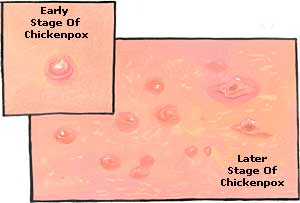Avoiding Dehydration
Dehydration may seem like a minor ailment, but it can be quite dangerous. In fact, millions of people worldwide—many of them infants and older adults—die of dehydration each year.
Get the Facts
In the simplest terms, dehydration occurs when you lose more water than you take in and your body does not have enough water to carry out its normal functions. What’s more, even mild dehydration—as little as a 1 to 2 percent loss of body weight—can cause symptoms such as weakness, dizziness and fatigue, and may have a negative effect on long-term health.
Water Loss
On average, adults lose about 2.5 liters (more than 10 cups) of water a day, simply by doing everyday tasks such as sweating, breathing and going to the bathroom. Also lost are electrolytes—minerals such as sodium, potassium and calcium—that maintain the balance of fluids in your body. This is before you may even think about mowing the lawn on
a humid afternoon, working out at the gym or rearranging the living room furniture—all of which cause much higher water loss.
Symptoms
Mild to moderate dehydration is likely to cause the following symptoms:
- Excessive thirst
- Sleepiness
- Dry mouth
- Few or no tears when crying
- Muscle weakness
- Headache
- Dizziness or lightheadedness
Prevent Dehydration
Preventing dehydration sounds easy enough: consume plenty of fluids and foods high in water content, like fruits and vegetables. However, how much fluid do we really need? Determining your appropriate water intake is not an exact science, as much depends on age, physical condition, activity level, environment and individual physiology.
The best recommendation is to simply make a conscious effort to stay hydrated. In addition, make water your beverage of choice! Try drinking water with every meal and between meals. Take water breaks instead of coffee or tea breaks, and substitute sparkling water for alcohol.
For more tips to keep you healthy (and keep your life insurance rates low), contact your agent.
Alcohol-Related Illnesses
Excessive consumption of alcohol can cause many negative health effects. ”Excessive consumption” means more than two drinks per day for a man under 65 and more than one drink per day for a woman under 65. In the short-term, alcohol depresses the central nervous system, lowers inhibitions, impairs speech and reduces muscle coordination. In extreme amounts, alcohol can significantly depress the vital centers of the brain and can cause a coma.
Those who drink alcohol excessively on a regular basis may experience fatigue, short-term memory loss and many other adverse health effects, including:
- Liver disorders
- Heavy drinking can cause alcoholic hepatitis (inflammation of the liver).
- After years of drinking, hepatitis can lead to cirrhosis (scarring of the liver).
- Gastrointestinal problems
- Excessive alcohol consumption can result in inflammation of the stomach lining, which interferes with the absorption of B vitamins
- Heavy drinking can also damage the pancreas, which regulates metabolism and produces enzymes to help digest fats, proteins and carbohydrates.
- Cardiovascular problems
- Heavy drinking can lead to high blood pressure and increase the risk of a heart attack.
- Diabetes complications
- Alcohol can increase the risk of low blood sugar because it prevents the release of glucose from the liver. This is dangerous for those that have diabetes and already have problems with low blood sugar.
- Sexual dysfunction and irregular menstruation
- Heavy alcohol consumers who are male are at risk of erectile dysfunction, and female heavy drinkers can suffer from interruptions in their menstruation cycles.
- Birth defects
- Drinking alcohol while pregnant may cause fetal alcohol syndrome. This condition can cause the following birth problems: developmental disabilities, heart defects, shortening of the eye lids and small head.
- Bone Loss
- Alcohol can interfere with bone growth and increase the risk of fractures.
- Neurological complications
- Heavy drinking can cause numbness in the hands and feet, and dementia
- Increased cancer risks
- Habitual alcohol use is linked to an increased risk of esophageal, laryngeal, liver and colon cancer.
In addition to the health risks of excessive alcohol consumption, alcohol abuse is also linked to:
- Domestic abuse and divorce
- Poor performance at work and school
- Higher risk of motor vehicle crashes and drunk driving
- Greater likelihood of other injuries as a result of being impaired by alcohol
- Higher incidence of suicide
Did You Know?
Avoiding alcohol or drinking in moderation is essential in curbing your risk of developing alcohol-related illnesses. With increased age, the body breaks down alcohol more slowly, which increases its damaging effects. For more information on how this habit can affect your life insurance, contact your agent.
Smoke Detector Maintenance
Smoke detectors play an essential role in protecting the lives of the people you care about most. To keep your home safe:
- Install a working smoke detector on every level of the home, facility and any sleeping areas.
- Test all smoke detectors at least once a month.
- Replace your smoke detector batteries at least once a year, if not every six months. Try doing it at a consistent time each year, such as when resetting clocks in the fall or spring.
- Never disable a smoke detector that goes off while cooking. If the detector is not reactivated, the results could be costly.
For more information on how this affects your home insurance, contact your agent.
Adult Vaccinations FAQs
Is it important for adults to be vaccinated?
Yes! Some illnesses, once contracted, do not have a cure and may cause tremendous health problems or even death. Vaccines are among the safest medical products available, are very effective, and can prevent the suffering and costs associated with many diseases.
What vaccines do adults need?
- Tetanus, diphtheria and pertussis (Tdap). All adults require these immunizations at 10-year intervals throughout their lives.
- Measles, mumps and rubella (MMR). Adults born after 1957 should be immunized against MMR.
- Pneumococcal pneumonia. It is recommended that adults over age 65 receive this vaccination.
- Influenza (flu). This vaccination is recommended annually.
- Hepatitis B. This vaccination is recommended for adults in certain high-risk groups, such as health care workers, household contacts of persons with chronic hepatitis B, persons with a recently acquired sexually-transmitted disease, adults under 60 who have diabetes and persons with multiple sex partners.
- Hepatitis A. Recommended for adults in certain high-risk groups including travelers to countries where hepatitis A is common, people with chronic liver disease or clotting-factor disorders such as hemophilia, and users of injection and non-injection illegal drugs.
- Varicella (chickenpox). Many adults who have not had chickenpox or been previously immunized should receive the varicella vaccine, including teachers of young children and day care workers, residents and staff in institutional settings, military personnel, nonpregnant women of childbearing age, international travelers, and health care workers and family members.
- Human papillomavirus (HPV). Recommended for adults in high-risk groups.
- Zoster. A single dose is recommended for people aged 60 and older.
How often do adults need vaccinations?
- Immunizations for pneumococcal disease and MMR generally protect indefinitely with one dose.
- Influenza vaccine must be administered yearly to those over 6 months old due to the annual appearance of new strains of the virus.
- Hepatitis B vaccine is usually administered in three doses given over a six-month period. Two doses of hepatitis A vaccine are needed to ensure long-term protection.
- Two doses of chickenpox vaccine are recommended for those over age 13 who have not yet had the illness.
According to the U.S. Department of Health and Human Services, approximately 50,000 adults die from vaccine preventable diseases each year in the United States. For more information on how this affects your life insurance, contact your agent.
Facts About the Flu
The flu is an infection of the respiratory tract caused by the influenza virus. It can cause mild to severe illness, and at times can cause complications leading to death.
Symptoms of the Flu
People who have the flu often feel some or all of these symptoms:
- Fever or chills
- Headache
- Fatigue
- Cough and/ or sore throat
- Runny or stuffy nose
- Muscle or body aches
- Stomach ailments such as nausea, vomiting and diarrhea (this is more common in children than adults)
How the Flu is Spread
The flu is spread primarily through germs when coughing, sneezing or talking close to others. It also can be spread if an individual touches a surface that was touched by an infected person, and then touches his or her own mouth, eyes or nose. People are typically contagious beginning one day before symptoms start and up to five to seven days after symptoms appear.
If Bitten by the Flu Bug
If you contract the flu, it is important to take good care of yourself. The Centers for Disease Control and Prevention (CDC) recommends:
- Stay home from work! It’s your best chance for recovery, and you will avoid spreading the disease to others.
- Get lots of sleep.
- Drink plenty of fluids.
- Take over-the-counter (OTC) medications appropriate for your symptoms.
- Most people do not need medical care, but consult your doctor if you are concerned. Also, seek immediate medical attention if you have any of the warning signs discussed on the next page.
Prevention
It is possible for serious complications to arise from the flu, including bacterial pneumonia, ear infections, sinus infections, dehydration and worsening of chronic medical conditions. This is why it is crucial to do all you can to prevent the virus from attacking you in the first place.
These simple steps should be taken in order to avoid the flu:
- Get a yearly flu vaccine. It is the most important step in protecting against the disease.
- Take preventive actions. Cover your mouth when you sneeze or cough. Try to avoid close contact with sick people and avoid touching your eyes, nose and mouth. Wash your hands often or use alcohol-based hand sanitizer.
- Take antiviral drugs if your doctor recommends them. These are prescription drugs that fight the flu by keeping the viruses from reproducing in your body.
- Maintain a healthy immune system by not smoking, eating healthy food, exercising, taking a daily multivitamin, getting adequate sleep and controlling your stress level.
Flu Vaccination
In 2010, the CDC changed their recommendation regarding flu vaccination – previously they had suggested that children and high-risk individuals get vaccinated. Now the official CDC recommendation is that everyone 6 months of age and older get a yearly flu vaccine. Vaccination is especially important if you are at high risk for serious flu complications, such as young children, pregnant women, people with chronic medical conditions, and people 65 years and older.
The 2012-2013 seasonal flu vaccine will vaccinate against multiple strains of influenza, including H1N1. Thus, only one flu shot is needed to protect against both seasonal and H1N1 flu this year. The vaccine is available in a shot or a nasal spray.
Contrary to popular belief, you cannot get the flu from the flu vaccine – but sometimes side effects mimic those of the flu, such as a headache, low fever and/or runny nose. These will only persist for a day or less, however.
Certain people should NOT get a flu vaccine without first consulting their physician, including:
- Those with a severe allergy to chicken eggs
- Those who have had a severe reaction or have developed Guillain-Barre syndrome within six weeks of getting an influenza vaccination
- Children less than 6 months of age
Emergency Situations
Occasionally, the flu can cause serious medical complications. It is important to seek immediate medical treatment if someone with the flu displays any of these signs.
In children, emergency warning signs include:
- Fast breathing (or trouble breathing)
- Bluish skin color
- Not drinking enough fluids
- Not waking up or interacting
- Being so irritable the child does not want to be touched
- Flu-like symptoms improve but then return with fever and worse cough
- Fever with a rash
In adults, emergency warning signs are:
- Difficulty breathing or shortness of breath
- Pain or pressure in the chest or abdomen
- Sudden dizziness
- Confusion
- Severe or persistent vomiting
- Flu-like symptoms that improve but then return with fever and worse cough
For more information on how illness can affect your life insurance, contact your agent.
Child Vaccinations: Chickenpox
Chickenpox is a very contagious virus of the herpes family, known as the varicella-zoster virus (VZV). It is characterized by a general rash and flu-like symptoms such as fever, headache and swollen glands.
Onset
The rash starts out as small, red, itchy sores (spots) that usually first appear on the face, chest or stomach, and then quickly spread to the rest of the body. Often, the flu-like symptoms common to the virus can appear even before the rash surfaces, making someone more susceptible to contracting or spreading the disease.
Easy to Spread
Chickenpox can be spread through sneezing, coughing and breathing. The virus can also be spread from direct contact with one of the open sores—for example, from bedding, clothing or other objects an infected person used and the open sore touched.
Vaccinations
Before the vaccine existed, 90 to 95 percent of people who hadn’t had the disease before developed it each year. Because the vaccine is 70 to 100 percent effective, however, the number of cases of chickenpox is significantly lower today.
The Centers for Disease Control and Prevention (CDC) recommend that children receive two doses of the VZV vaccine—the first between 12 and 15 months of age, and the second between four and six years of age. Individuals who are 13 years of age or older and have not already had chickenpox or the vaccine should receive two doses of the vaccine at least 28 days apart.
Tips for Parents
To make your child’s vaccination experience easier, here are a few tips to keep in mind:
- Tell older children what is going to happen. Explain that the vaccination will keep them safe and healthy. Knowing what to expect will reassure your child and make it less scary.
- Let your child know that it is okay to be scared, but suggest he or she try to be brave. Praise your child for his or her bravery after the vaccination is over.
- Try to distract your child while the vaccination is being administered. For example, have him or her look away rather than watch, or count or sing the alphabet.
For more information, please visit www.cdc.gov/vaccines.
Did You Know?
Vaccines provide effective immunity, but only temporarily. In the case of chickenpox, lifelong immunity only comes from having and recovering from the disease.
For more information on how to protect yourself from the seriousness of the disease, contact your doctor. For more information on insurance, contact your agent.
Vegetarian and Vegan Diets
Everyone makes food choices in different ways. For some, it is more than simply out of hunger or craving; their food choices are a way of life.
Vegetarianism is a choice to abstain from eating meat products. Those who are vegan do not eat anything containing animal products (such as dairy and eggs), and prefer not to use products made of fur, leather, wool or down feathers.
Why Vegetarianism?
- Substances in meat (such as saturated fat) cause heart disease, cancer, osteoporosis, kidney disease, obesity and diabetes.
- Cow milk has the right amount of fat and protein for young calves but too much for humans.
- Eggs have the highest amount of cholesterol of any food.
- Meat products contain pesticides and synthetic additives given to livestock, which may cause health problems in humans.
- Animal agriculture uses excess amounts of the earth’s resources. Instead of giving this to animals, these resources could be used to feed people. It is estimated that the grain used annually to feed livestock could feed 1.3 billion people.
Eating a Meatless Diet
If becoming a vegetarian or vegan sounds like a lifestyle choice that is right for you, here’s how to transform your diet:
- Gradually substitute meat products in your meals with vegetarian options. Add new foods regularly and slowly eliminate meat products.
- Eliminate red meat first and then pork, poultry and fish.
- Substitute eggs and dairy products (for vegans only).
There are many meat substitutes available that have a similar look, texture, taste and nutritional benefits to their meat counterparts. For instance, tofu and tempeh (made from soybeans) hot dogs, hamburgers, sausage links, etc. are high in protein and calcium.
Vegans have the option to purchase soy, rice and nut milk, and soy margarines, cheeses and ice cream.
Precautions
Those who adopt this lifestyle must be aware of the health responsibilities that go along with
it. Since you are not consuming any meat (or animal products, for vegans), you must replace the amino acids, vitamin B12, iron, calcium, vitamin D, zinc and essential fatty acids in your diet.
Eating soy, beans and peas along with grains like rice, wheat and oats provide
complete proteins and amino acids. Beyond this, dark green vegetables, fruits and legumes will replace vitamin D, calcium, iron, vitamin C and zinc.
Taking a multivitamin to replace lost nutrients, and flaxseed for omega-3 essential fatty acids will provide nutritional value similar to what is found in meat products.
Did You Know?
According to the U.S. Food and Drug Administration (FDA), vegetarians have a lesser chance of obesity, heart disease, lung and colon cancer, hypertension, diabetes, kidney stones and ulcers from their meatless diets and overall healthy lifestyles. For more information is how this affects your life insurance, contact your agent.
Go Nuts!
Nuts are wonderful snacking options because they have protein, fiber and health-protective plant substances packed in every bite! In fact, eating just one and a half ounces of your favorite nut per day may reduce your risk of heart disease.
Benefits to Your Health
- Almonds contain the most fiber of all nut varieties.
- Almonds and hazelnuts have vitamin E, an antioxidant.
- Pecans contain cancer-fighting ellagic acid.
- Brazil nuts have the antioxidant selenium.
- Cashews and pistachios contain lots of potassium.
- Walnuts contain heart-healthy omega-3 fatty acids.
- Most nuts contain phytic acid, which reduces the risk of cancer and controls blood sugar, cholesterol and triglycerides.
- Nuts are high in protein, phosphorus, zinc and magnesium.
Nuts Promote Weight Loss
Though nuts do contain fat and calories, they may also assist in weight loss, according to a recent study. Researchers found that adding almonds, one of the most nutrient-rich varieties, to a calorie-controlled diet assisted in weight loss because the fat content in the nuts promotes fullness. This feeling of being full, along with the protein in the nuts, may burn more calories during the digestion process. Just remember… like all foods, eat nuts in moderation and opt for the unsalted varieties.
For more information on how this diet affects your life insurance, contact your agent.
Roadway Safety Driving Tips
You share the road with cars, buses, motorcycles and pedestrians every day on the job. Therefore, safety for yourself and other individuals on the road is in your hands. It is necessary that you comply with speeding laws, following cautions and passing procedures to ensure that you and those around you are safe.
Driving
- Always follow the posted legal speed limit.
- Be especially mindful of your speed when passing a school where children are present, when going through an intersection marked “school crossing” or when passing a safety zone occupied by pedestrians.
- In addition to obeying the posted speed limit, also obey the “reasonable and prudent” speed limit.
– This means that you should not drive faster than the conditions allow.
– In rain, fog, ice, snow and heavy traffic, you should reduce your speed to avoid an accident.
– Slow also when crossing an intersection or railway crossing, going around a curve or passing through construction zones.
Following
- Maintain at least a four-second following distance behind other vehicles.
- Allow more space and time depending on weather conditions and traffic congestion.
- Never follow too closely. It takes 400 feet for a large truck to come to a complete stop.
Passing
- When attempting to pass another vehicle, signal ahead of time to alert your intentions.
- Ensure that you can see the vehicle’s headlights in your mirrors before pulling back in front of it.
Be cautious while passing during rough weather conditions. For more ways to drive safe this winter season, contact your auto insurance agent.
Stairs and Depression
Take Care on the Stairs!
Do you take the stairs? It doesn’t seem that risky but according to The American National Council on Compensation Insurance, falls are the second-most costly injury, making them more common than they appear! Whether using the stairs on the job or at home, practice the following safety tips to avoid a tumble:
- Always use handrails.
- Turn on lights when going up and down.
- Keep stairways free of clutter and debris.

- Before going up or down, check for worn or loose carpeting, or protruding carpet tacks.
- Familiarize yourself with the length of the staircase so you do not mistake the bottom step for a flat surface and lose your balance.
- Wear footwear with adequate traction to prevent sliding.
- Do not carry loads that block your vision. Instead, carry smaller loads that allow you see in front of you.
What to Do if You’re Feeling Blue
Everyone experiences sadness from time to time, especially after a loss or an upsetting event. Typically, these feelings tend to fade and life returns to normal. However, if sadness or the loss of interest in normal activities lasts longer than a few weeks, you may be suffering from depression.
Depression affects people from all walks of life, and if left untreated, can be debilitating. How do you know if you are depressed? Here are some common symptoms:
- Decreased energy levels
- Feelings of fatigue
- Irregular sleeping and eating patterns
- Difficulty concentrating, remembering things and making decisions
- Feelings of guilt, worthlessness and helplessness
- Chronic aches and pains that do not respond to medical treatment
If you think you are suffering from depression, do not allow it to control your home and work life. Get back on track by talking with your physician. For questions regarding your life insurance, contact your agent.











